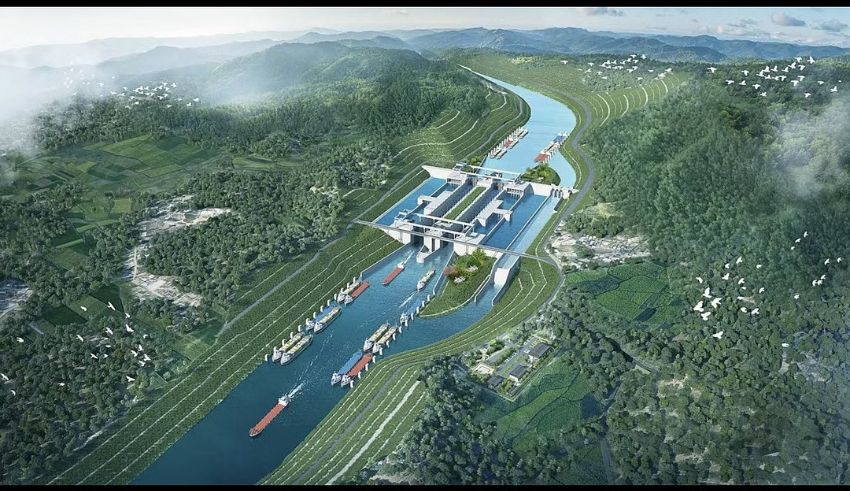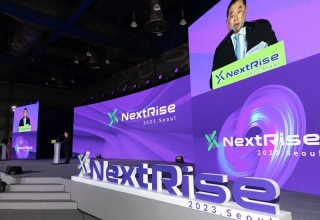
The Pinglu Canal, a 135km long project in the southwestern border region of Guangxi, highlights China’s state-of-the-art construction techniques and strategic thinking amid a fast changing geopolitical landscape.
Gao Zhendong, a consultant who helps Chinese firms explore investment opportunities in Southeast Asian countries, believes the practical value of this project is worth looking forward to. He says its equivalent to more capillaries to glue closely together China and the Association of the Southeast Asian Nations markets, the 10-member ASEAN bloc.
The Pinglu Canal, which will stretch over 134 kilometers from the Xijin Reservoir to the port of Qinzhou, is described as a signature infrastructure project. It’s expected to carry 108 million tonnes of cargo by 2035 and 130 million tonnes by 2050. Container ships will be able to sail from the regional capital city of Nanning to Vietnam, Malaysia, Singapore, Indonesia, and other Southeast Asian countries in weeks.
Officials said work is being carried out on a 24-hour basis to meet the completion deadline of 2026. Yang Jiang, an expert on China’s politics and economy at the Danish Institute for International Studies, says the project highlights Beijing’s shifting focus toward enhancing maritime connectivity for its Belt and Road Initiative. He said the project was conceived in a 2019 plan to construct a strong transport country.
Sources revealed the canal will shorten the shipping distance from inland river systems to the sea by 560km. The Pinglu Canal will actuate a convenient and economical gateway close to Southeast Asia, and promises to boost industries in Guangxi and other parts of relatively less-developed western China.
Keep Reading
It should be noted that with increasing pressure from the U.S. and its Western allies, Beijing is working towards reducing its trade dependencies. The U.S. and China have similar fears that the other will suddenly weaponize trade flows, cutting off imports or exports in terms of security.
Regional experts say the Pinglu Canal will soften the animosity between Beijing and respective governments in Southeast Asia. Phar Kim Beng, CEO of Strategic Pan Indo-Pacific Arena (SPIPA), pointed out that a stronger relationship between China and some ASEAN countries benefits both. They need cooperation to blunt the sharpness of their territorial disagreements in the Spratly and Paracel islands.
Yang believes lessons should be drawn from the COVID pandemic lockdowns which caused severe supply-chain interruptions. He said there is a need to strengthen some of the ports in China so that it doesn’t rely on bigger ports in Shanghai. As such, the Pinglu Canal will create an efficient land-sea corridor.



























